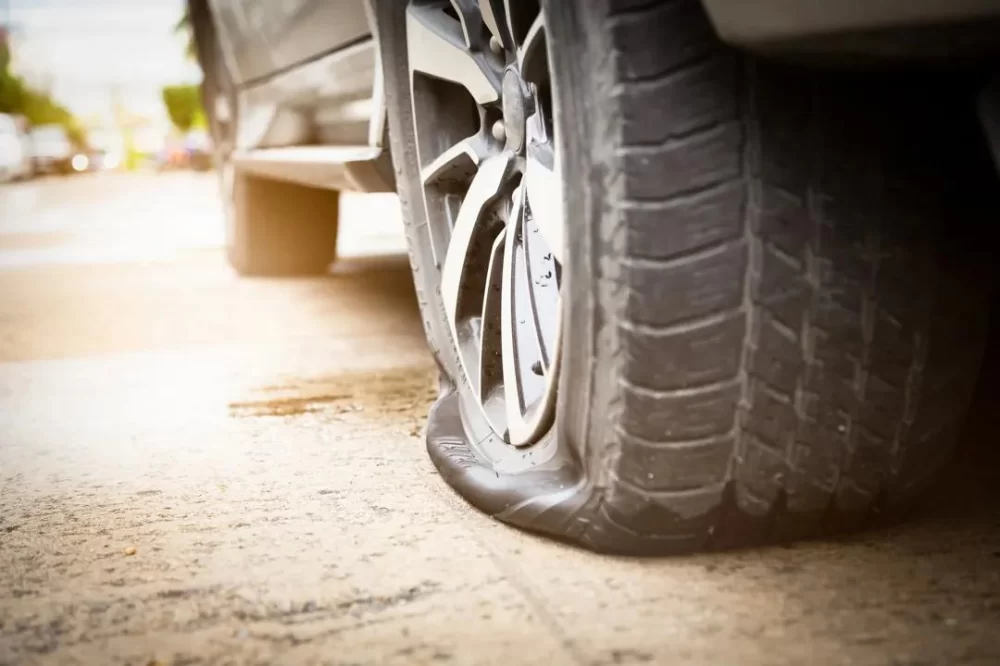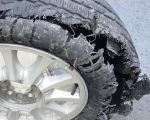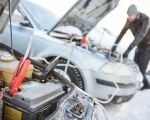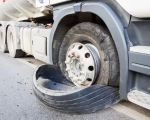Why Tire Blowouts Often Happen on Highways
When I'm driving on the highway, I always feel that mix of freedom and speed that comes with cruising down an open road. But, despite all the safety features that modern vehicles offer, there's always that small but significant risk of a tire blowout. I know I'm not alone in thinking about the possibility, because tire blowouts are one of the most common, and sometimes frightening, incidents drivers face on highways. But what causes these blowouts, and why do they seem to happen so frequently on highways? In this article, I’ll take a deeper dive into why tire blowouts are more likely to occur on highways and what factors contribute to these potentially dangerous events. High Speeds Exert Pressure on Tires One of the first things I’ve noticed while driving on the highway is that I’m typically going much faster than I would on city streets. Higher speeds, though thrilling, can be a major contributor to tire blowouts. When I’m traveling at high speeds, the tires are subjected to a significant amount of heat and friction. The faster the tires rotate, the more they heat up. Tires are designed to withstand a certain amount of heat, but as speed increases, so does the risk of the tire’s integrity being compromised. Most tires are rated for a maximum speed and load, and driving above this limit can overstrain the tire, increasing the chances of a blowout. This is why it’s so important to maintain a safe speed on highways, as exceeding this can wear down the tire and ultimately cause failure. Underinflated or Overinflated Tires Are More Vulnerable Another important factor I’ve learned about tire blowouts is the role of tire pressure. I’ve been told time and time again how crucial it is to maintain the proper tire pressure, but what does that really mean in terms of tire blowouts? If my tire is underinflated, the sidewalls and tread are more likely to overheat, putting excessive stress on the rubber. Underinflated tires can also be prone to rolling more easily, causing excessive wear that increases the chance of a blowout. On the other hand, overinflated tires are also a problem. They may not have enough flexibility to handle road hazards, and their structure becomes more rigid, increasing the likelihood of a puncture or rupture. On highways, where I’m often encountering rough road conditions or debris, an overinflated tire may be more susceptible to damage. It's no wonder that one of the most basic things I can do to prevent a blowout is to regularly check and maintain tire pressure. Potholes and Debris on Highways Highways, especially older ones, often have debris, potholes, and other road imperfections that can surprise any driver. I’ve experienced this firsthand—one minute, I’m cruising along at 70 mph, and the next, I’m hitting a pothole that I didn’t see coming. This sudden jolt can be enough to damage the tire or cause a blowout. It’s not just potholes that pose a danger; road debris like loose gravel, nails, or broken glass can cause a sudden puncture. If the tire’s tread is already weakened by wear, hitting one of these objects can quickly turn into a disastrous situation. The tires on my vehicle are constantly being bombarded by these hazards when I’m on the highway, and it’s something I always try to stay vigilant about. Worn Tires and Age-Related Deterioration A big factor I can’t ignore is the age and condition of my tires. I’ve learned that tires don’t last forever. Even though they may look fine on the outside, the rubber inside can degrade over time due to exposure to heat, sunlight, and weather conditions. As tires age, the material becomes more brittle and loses its elasticity, making them more prone to damage. On highways, where I tend to drive faster and for longer periods of time, worn tires are at a much higher risk of blowing out. I’ve heard experts say that tires should be replaced every six years, and regardless of tread wear, even if the tire looks fine, it could still be susceptible to failure because of aging. Regularly inspecting tires and replacing them when necessary is crucial, especially if I’ve been driving on the highway for long stretches. Improper Tire Alignment and Balancing Tire blowouts aren’t always about the tire itself; sometimes, the vehicle's suspension system can contribute to tire failure. If the wheels are out of alignment or the tires are unbalanced, they can wear unevenly, leading to weak spots. Over time, this uneven wear can make the tires more prone to blowing out, especially when I’m driving at high speeds on the highway. Having my vehicle’s alignment and balance checked regularly is an important step I can take to avoid these issues. If the tires are wearing unevenly, it might be a sign of a bigger problem that could ultimately lead to a blowout if left unchecked. Driving with Heavy Loads One of the most common causes of tire blowouts that I’ve come across, especially on highways, is driving with a vehicle that is overloaded. Whether I’m hauling a heavy load of luggage or towing something behind my car, the extra weight can put more strain on the tires than they’re designed to handle. Overloaded vehicles increase the heat buildup in the tires, which can lead to a blowout. The tires are designed to handle a specific amount of weight, and when this limit is exceeded, the risk of tire failure significantly increases. So, if I’m planning a long trip on the highway and I’m carrying a lot of cargo, I make sure to check the vehicle’s weight capacity and ensure that my tires are up to the task. Extreme Weather Conditions Finally, I can’t overlook how weather affects tire health. Highways can be particularly dangerous when I’m dealing with extreme temperatures—whether it’s the scorching heat of summer or freezing temperatures in winter. In extreme heat, the tire’s rubber can soften, making it more prone to punctures and blowouts. On the other hand, in cold temperatures, tires can harden, losing traction and becoming more vulnerable to damage. The combination of high speeds and these environmental conditions on highways can lead to a dangerous situation where the tires become too weak to handle the stresses, increasing the risk of a blowout. If I’ve learned anything from my experiences on highways, it’s that tire blowouts are a serious risk, but many of them are preventable with regular maintenance, proper tire pressure, and staying aware of the road conditions. Knowing how to prevent tire blowouts is essential for any highway driver, and by taking proactive steps, I can make sure my trips are as safe as possible.If you ever find yourself needing assistance after a blowout or other tire-related incident, it's always a good idea to have a reliable towing service on hand. Many professional towing services offer quick response times to get you back on track after a tire emergency.



























